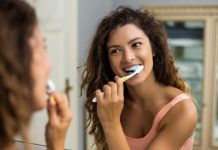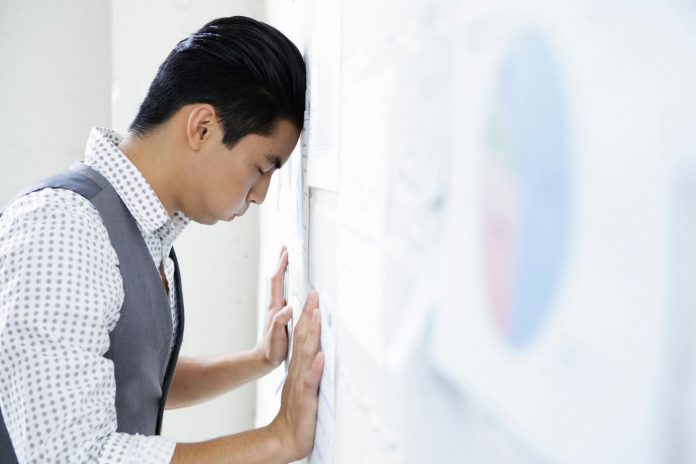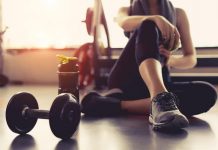We’ve all heard the saying before: There’s nothing better than a good night’s sleep.
Even if you manage to carve out time in your schedule to get enough sleep, you may have a hard time nodding off, or you may wake up during the night.
You aren’t the only one. According to a 2019 , sleep disruption has become something of a hidden public health epidemic in recent years.
Surprisingly, this may have a lot to do with what you’re doing while you’re awake. Read on to learn what common daytime habits may be sabotaging your sleep.
Daylight and blue light
Getting daylight plays a big part in keeping the circadian rhythm, the internal regulator of sleep and wakefulness, functioning normally.
“Sunlight is one of the most important cues that signal [to] our brain that it’s time for us to be awake, while diminishing amounts of light signal that it’s time for our body to get ready for sleep,” explains Mairav Cohen-Zion, the chief science officer of dayzz.
So, how much sunlight do you need?
“It’s recommended to get at least 20 to 30 minutes of sunlight in the morning hours and avoid blue light during the 2 hours leading to bedtime,” Cohen-Zion says. “This can make your sleep-wake cycle more robust and help you feel awake or sleepy just at the right time and place.”
Interestingly, daytime blue light isn’t an issue and can even help you get to sleep at night.
According to a 2008 s, getting more blue light when the sun is up can actually help you feel more awake during the day and sleepier in the evening.
“Too much blue light during the day has no impact on our sleep cycle,” says sleep psychologist Samina Ahmed Jauregui. “Too much blue light in the evening, however, can delay the onset of melatonin.”
Melatonin is a hormone that lets your body know it’s time to sleep. In other words, using your phone in the evening can trick the body into thinking it isn’t bedtime.
“Melatonin is necessary to help us fall asleep. If delayed by blue light, you’re more likely to be up longer,” Jauregui says.
Long naps in the daytime
While you may think taking a nap during the day will help you “catch up” on lost sleep, it can actually do more harm than good.
“Keep daytime naps brief,” suggests Victoria Wildhorn, a sleep health specialist at Mattress Clarity. “If your nap is long enough for you to fall into a deep sleep, it’ll be harder to wake up from the nap and harder to fall asleep that night.”
What’s the ideal amount of time to nap?
“Time-limited naps of 15 to 20 minutes can be refreshing and improve daytime productivity,” Jauregui says. “Long naps or naps taken too late in the day (after 3 p.m.) can reduce your sleep drive and make it harder to fall or stay asleep.”
Pre-bed snacks
Certain foods can negatively impact your sleep, especially when eaten in the evening. These include:
chocolate
sugar
saturated fat
A 2016 study also found that diets that are low in fiber and high in saturated fats and sugar can lead to sleep disorders.
“Avoid eating a large, high sugar or high saturated fat meal before bed,” Wildhorn says.
On the other hand, foods high in healthy fats can help you get to sleep. Try:
walnuts
avocado
full fat milk
cheese
yogurt
chia seeds
fish
“Allow yourself at least 2 hours to digest your meal to help prevent heartburn and the risk that you’ll have trouble sleeping,” Wildhorn adds.
Bed habits
In 2020, Best Mattress Brand surveyed 500 people who made their bed in the morning and 500 who didn’t.
According to the survey, those who were in the habit of making their beds were more productive, ate healthier foods, and felt more accomplished at the end of the day. On average, bed-makers got around 20 minutes more sleep, had less difficulty falling asleep, and were more likely to feel rested in the morning.
“Making your bed in the morning doesn’t directly mean you’ll sleep better, but it is most definitely a part of the bigger picture,” explains Rosie Osmun, a certified sleep science coach from Sleep Junkie.
Rather than having a direct effect on your sleep, making your bed may be a part of a larger routine that signals to your brain when it’s time to sleep and when it’s not.
“Generally, you sleep better when you’ve had a good day,” Osmun says. “Beginning your day by making your bed puts you into a more productive mood, which is likely to have a domino effect on your whole day, trickling right down to your evening routine when you get back into bed.”
Plus, she adds, it’s much nicer to get into a made bed at the end of the day. Try making your bed every morning.
On that note, you may want to avoid hanging out in your bed during the day. This can confuse your body into associating your bed with wakefulness and disrupt your natural circadian rhythm.
Instead, limit time in the bed to two things: sleep and intimacy.
To-do list
Worrying about the things on your to-do list can keep the brain overly active in the evening, making it hard to sleep.
As an antidote, a 2017 found that writing down your list of to-dos can help you feel more relaxed and in control, leading to improved sleep quality.
Rather than ruminating, try putting pen to paper. This can give you a sense of closure: An action’s been taken, now you can get your rest.
Weekend schedules
It’s tempting to buck the weekly routine and let it all hang out on the weekends. Unfortunately, this may be disrupting your sleep schedule.
If you tend to go to sleep later and sleep in on weekends, this can actually throw off your circadian rhythm.
According to an older 2009 , an irregular bedtime and sleep schedule can lead to poor sleep quality.
Instead, try to sync your weekdays with your weekends, getting up and going to sleep at roughly the same time.
Evening exercise
While exercise has been shown to improve sleep quality, when you exercise can have an impact on your circadian rhythm.
A 2019 found that exercising in the morning at 7 a.m. or in the afternoon between 1 and 4 p.m. could make you sleepy earlier in the evening, whereas evening exercise between 7 and 10 p.m. could delay the body clock.
Skip the evening workout if possible and get your movement in before 7 p.m.
Mind games
Although they may sound like end-of-day activities, reading mentally or emotionally stimulating books, problem-solving, or emotionally intense conversations can make it harder to drift off to sleep.
“If the mind is stimulated, it doesn’t matter how tired the body may be. The mind can overpower the body and delay your ability to sleep or result in restless sleep,” says Jauregui. “This also increases the chances of experiencing more vivid or disturbing dreams.”
Instead of mental activities, try:
listening to soothing music
taking a warm bath
doing a gentle yoga session
doing self-massage
looking at a coffee table book with calming pictures
engaging in meditation or prayer
Soothing vs. stimulating scents
Scent can play a big part in your ability to sleep. Get the most out of aromatherapy with a diffuser by your bedside to help encourage sleep.
“Essential oils are a simple yet effective aid to a better night’s sleep. However, there are some to avoid,” says Julie Leonard, aromatherapist and life coach.
Oils to avoid include:
peppermint
citrus
ginger
rosemary
basil
eucalyptus
jasmine
Instead, try:
lavender
sandalwood
rose
bergamot
ylang ylang
vetiver
sandalwood
cedarwood
Medication side effects
Taking medication? Research says it may be keeping you awake.
A 2020 showed that more and more Americans are taking pharmaceuticals that help them with a condition, but include insomnia as a side effect. The study also noted that taking more than one medication increases the likelihood of experiencing insomnia as a side effect.
Researchers in the study identified 239 medications with insomnia side effects that participants used, though they noted that this number doesn’t include all medications with insomnia side effects in the U.S. market.
Check with your doctor if you believe your medication is negatively affecting your sleep. They may be able to suggest an alternative.
Smoking habits
Though some may reach for a cigarette to help them relax, it might not be the best option before bed.
“Smoking too close to bedtime or in the middle of the night triggers nicotine cravings in your sleep,” Jauregui explains. “That craving is likely to wake you up or contribute to restless sleep.”
As a 2021 found, nighttime smoking is strongly linked with insomnia.
Hydration
Staying hydrated throughout the day can help you get your rest at night.
A 2018 study found that short sleep duration was associated with higher rates of dehydration in U.S. and Chinese adults.
Staying hydrated throughout the day can help you make it to morning with enough liquid in your system. You may even want to drink a full 8 ounces of water an hour before bed, giving you plenty of time to take a bathroom break first.
Vitamin intake
Certain vitamins may help or harm your sleep.
For instance, a 2018 study found that supplementation with vitamin B6 resulted in higher sleep scores and less tiredness on waking when compared with a B complex supplement.
A 2007 studyTrusted Source found that taking a multivitamin or multiple single vitamins was associated with poorer sleep compared to individuals who didn’t take vitamin supplements. Vitamin users tended to wake more at night, spend more time awake during the night, use more sleep medications, and have a higher rate of insomnia than non-users.
Speak with a doctor to find out whether you need more vitamins in your diet, or whether you may be getting too much of others.
Hot bath or shower
While you may think that a hot bath right before bed will help you slow down at the end of the day, it may actually make it harder for you to fall asleep.
That’s because a hot shower or bath will cause your body temperature to rise.
“The optimum temperature for showering or bathing before sleeping is lukewarm,” Osmun says. “This is because, in order to sleep, your body temperature needs to drop — hence why you may struggle to sleep when it’s too hot.”
This way, your body temperature will have time to drop before you get in bed. This spike and then drop in temperature simulates the natural temperature decline that occurs before sleep, encouraging your body and mind to drift off.
On the other hand, even though the body temperature needs to drop before sleep, a cold shower can overstimulate the body.
“If you’re a fan of cold showers, stick to those in the morning, and have warm showers in the evening,” she says.
Coffee after dinner
You may know that caffeine leads to alertness and wakefulness, but it can still be hard to say no to that afternoon coffee.
However, it’s probably not worth it.
“Avoid caffeine consumption in the afternoon through the evening hours to improve your sleep,” Wildhorn says.
Instead, try an herbal or decaffeinated tea or warm, spiced milk
Evening drinks
Even though alcohol can sometimes make you sleepy, too much can lead to poor sleep.
“Alcohol is a depressant and can help you fall asleep faster, but consuming too much can disturb your circadian rhythm,” Wildhorn says. “It can also interfere with rapid eye movement (REM) sleep, the most important stage.”
Because alcohol acts as a depressant on the central nervous system, you may find that you fall asleep more quickly after drinking. However, you may also find that you wake up or experience disruptive vivid dreams.
Although drinking may make you feel tired, it won’t get you the quality sleep you need.
“People who consume alcohol may go right into deep sleep then abruptly into light sleep and deep sleep again,” Jauregui adds. “This continues for most of the night. Once awake, you are more likely to feel exhausted and unrefreshed than rested.”
Hot sleeping space
As mentioned above, it’s difficult to sleep when the body is too hot.
“Our body temperature naturally rises as we get deeper and deeper into our sleep,” explains Jauregui. “A warm sleep environment is likely to feel uncomfortable and interrupt the sleep cycle with frequent awakenings or restless sleep.”
Keeping a window open or a fan going can go a long way toward cooling down your space. Though you don’t have to keep your room cool all day, you can take a moment in the evening to get the temperature lower before bedtime.
Bedtime routine
A wind-down routine can go a long way toward getting you the restful sleep you need.
Some ways to signal to your brain that it’s time to wind down before you hit your pillow include:
dimming the lights
diffusing essential oils
putting on calm music
moving from a large, open space to a cozier, more intimate space
turning off electronics
drinking a warm beverage
meditating
changing into pajamas
There are plenty of ways to create a bedtime routine that works for you.
There are lots of simple tricks you can use to tweak your daytime habits for better sleep.
If these lifestyle shifts don’t help, speak with a doctor about other solutions to help you establish a consistent, healthy sleep schedule.






























